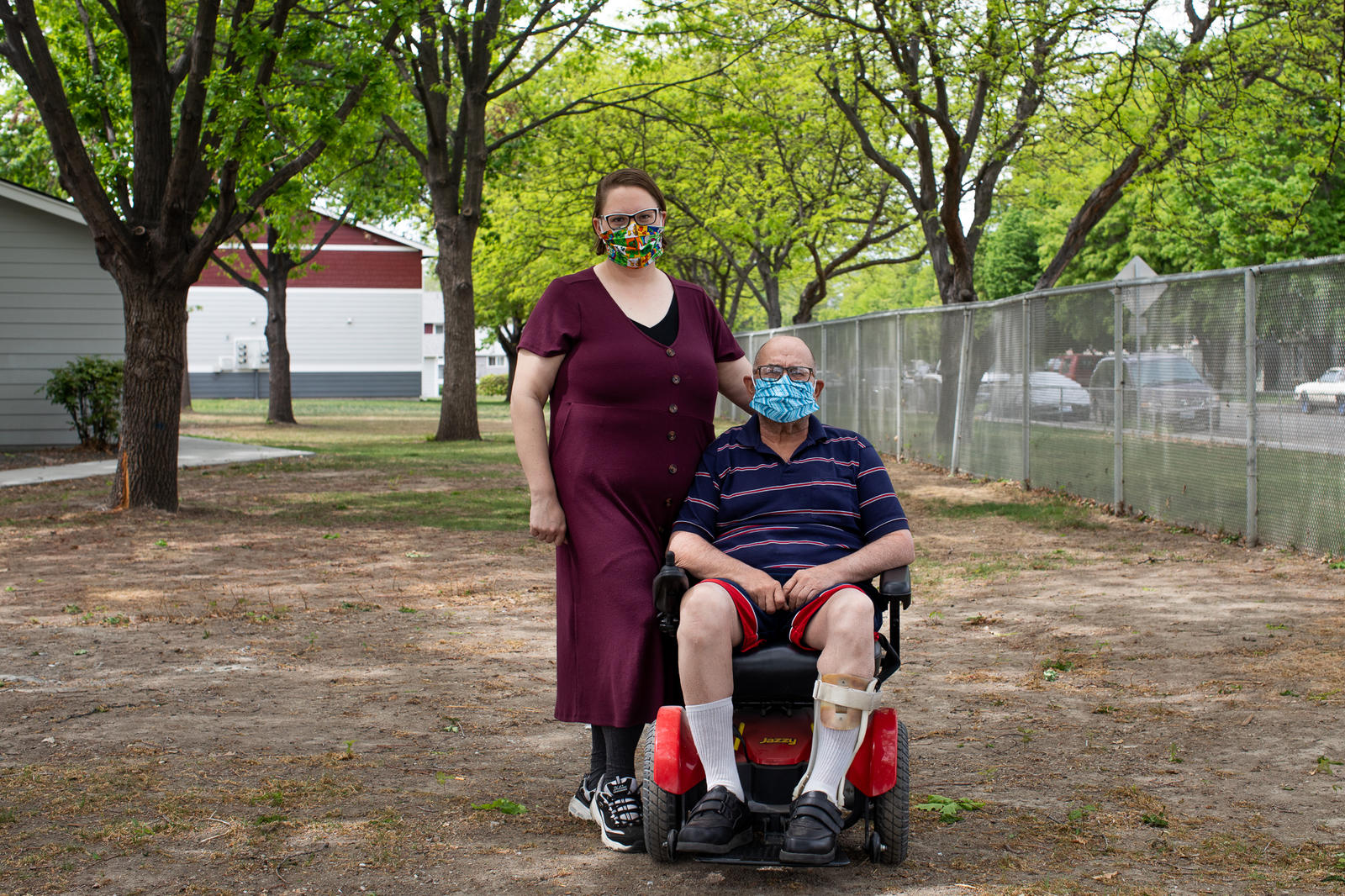Left in the lurch, caregivers risk their lives to keep clients safely at home: ‘You don’t get any more front line than being in somebody’s bedroom.’
Brittany Williams’ work bag is getting heavier and heavier. As an in-home caregiver, it’s her responsibility to carry everything she needs to every client’s home.
When the 34-year-old Seattleite arrives at one of her two clients’ homes, she leaves her shoes at the door and puts on rubber-soled socks she gets from Dollar Tree. She goes inside and immediately washes her hands. Because she’s allergic to hand sanitizer, she carries a bar of soap with her, alongside her gloves and reusable mask. She dons the gloves and vigorously uses Lysol on the doors before she starts any tasks with her client.
While she gets gloves through her home care agency, they were able to secure only two disposable masks for each worker or agency provider. Although they’re single-use medical masks, Williams washes and reuses them.
Williams, who has been doing this work for six years, is also an individual provider, where the personal protective equipment (PPE) situation is more dire. Individual caregivers work for clients through DSHS — and not a clinic or agency — and must depend on their own ingenuity to secure gloves and masks. Williams ended up sewing her own mask, taking a bandana provided by her union and using other materials from Dollar Tree. Through trial and error, she ended up with one reusable mask to use every day for both her clients. That means there is only one mask for use not only in the clients’ homes, but also for taking transit, running their errands, taking her clients to appointments and protecting herself outside of work.

